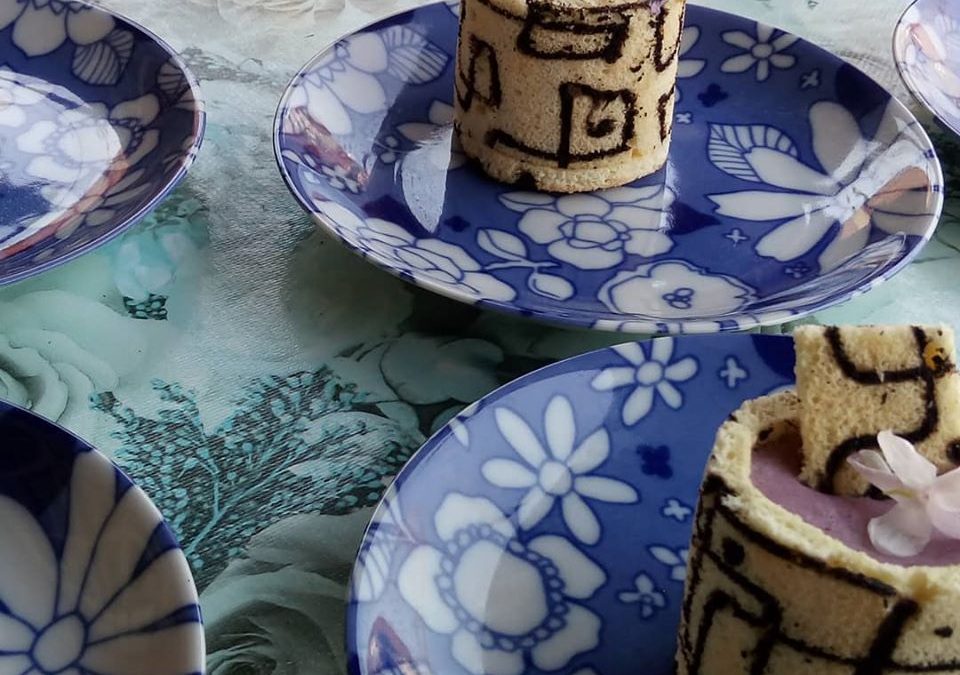I stand in the kitchen, a song playing in the background, while I cook some delicious vegetables and wait for the lovely pie in the oven to finish baking. At the same time I wonder which food I should cook first and which later, and which combinations of spices I should use, and whether I should also cook some rice…
And then, in the middle of this tangle of thoughts and ideas, the song in the background catches my attention. I continue stirring the dish with the wooden spoon, but my mind is now focused on the lyrics:
“Can you hear the silent voices?
Every living thing screams:
‘Don’t leave me here alone!’
Your fleeting life will end in this beautiful world,
But all I see is bright, but just for a moment.
So stay here,
Stay…”
I stop what I was doing and play again that part of the song. Still unsatisfied, I play the song again from beginning to end, and then listen to it twice more while still searching the Internet for who had written it and how.
I think to myself that the words of this verse are magical! (while still searching the Internet): “All living beings feel alone and silently cry out for help…” The sentence moves me deeply. It reminds me of several people I had seen recently – I now feel that they must have been crying out for help…
Even my dear cat, my beloved little cat – when she came to my house she was so vulnerable and suffering. She had been treated so badly. And despite all the love and care I had given her, she couldn’t heal for many years.
I recall the philosopher Emmanuel Levinas:
“Before any particular expression, and under all particular expressions which cover and protect the Other with a face or expression, there is nakedness and destitution. In other words – extreme exposure, defenselessness, vulnerability…”
That’s so true – even in a happy face, in a confident attitude, in a beautiful body, in a rich person. I remember a newspaper interview I had read today, with a well-known Spanish actor who, despite being so handsome and rich and talented, had always felt deep sadness and guilt, and a sense of being ugly and useless. He even wondered how his mother had managed to love so much such a monster like him.
Wasn’t this a desperate and heartbreaking cry? Looking from the outside, we would have never guessed it! He seemed so confident, so happy and lucky. Yet, he screamed for help.
But I don’t want to talk about other people anymore. Isn’t there something in me, too, that keeps screaming? Something that needs to tear apart the universe, and to break it until it bleeds? Isn’t there something in me, too, that begs for help?
What I need at this precise moment is to distract myself. The topic is too heavy, and I don’t want to think about sad things. I remind myself that there are many beautiful moments in life, happy times of celebration and joy, and beautiful memories! But my crazy mind does not obey me, and it takes me back to the song: “Your fleeting life will end in this beautiful world. But all I see is bright, but just for a moment”. And I think: There are certainly moments of happiness, of joy, of celebration, but these are just that – moments…
I now recall a sentence from my childhood, which my mother used to say to me whenever I complained (which happened quite often): “Be grateful that you have toys. Other children don’t even have food!” It is perhaps because I had heard this sentence so often that now, even at moments of happiness, my conscience awakens and tells me: “Remember that you are privileged – others just die!”
Now it strikes me that I must to do something about the suffering in the world, and that what I am actually doing is not enough. I want to cry – too many are suffering, and something is not right. With some effort I force myself to stop. I take a deep breath. I calm down. I go back to the kitchen and continue my task with the wooden spoon. Calmly I drink a glass of water.
But my mind, a mind full of tricks, doesn’t calm down so easily. It reminds me of another quote by Levinas:
“But, in its mortality, the face before me summons me, calls for me, begs for me, as if the death which must be faced by the Other is my business. The other man’s death calls me into question, as if, through the indifference which I might show in the future, I am a collaborator with the death to which the Other is exposed. And as if I had to justify myself for the death of the Other, and to accompany the Other in his mortal solitude.”
Levinas is breaking my heart today. What can I do? What does the begging face of the other person want from me?
At that very moment I suddenly notice – the smell of burning! The pie in the oven! And as I open the oven and pull out the pie, relieved that it is still edible, the song reaches its last verse:
“So stay here, stay…”

